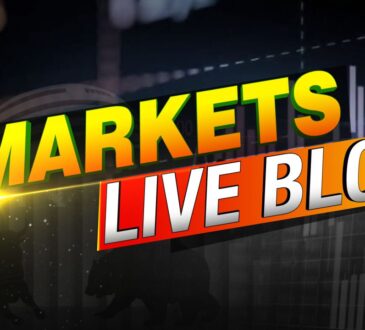‘Manic market’ action looks like dot-com bust, David Rosenberg says

The past week’s tumultuous stock market action harkened back to the dark days of 2000 as the dot-com bubble was bursting, according to economist and strategist David Rosenberg. With tech leaders sagging and investors heading for cover, the widely followed market bear sees similarities between two eras that showed overheated investor sentiment and an overvalued market. “The massive daily swings reflect a manic market becoming unglued,” the head of Rosenberg Research wrote in his daily market note Friday. “The action is highly reminiscent of what happened in the immediate aftermath of the Nasdaq rolling off the bubble highs in March 2000.” As the week drew to a close , the carnage in tech was palpable: The Nasdaq Composite , which lists most of the highflying sector leaders, was off nearly 3.7% on the week. Tech powerhouse Nvidia tumbled more than 8%, while Microsoft dropped 3.6% and Alphabet registered a 4% loss. Some of that spilled over to the other indexes, with the S & P 500 posting a nearly 2% decline for its worst week since April, though the Dow Jones Industrial Average eked out a modest gain. Yet investor sentiment surveys showed investors largely untroubled by the recent spell of volatility, with both retail and institutional participants largely optimistic that the market would get back on its remarkable 2024 winning streak. “I have to say that I have this classic ‘What, me worry?’ Alfred E. Neuman feeling when I look at the action in the equity market and the reasons for this relentless exuberance,” Rosenberg said. In this week’s American Association of Individual Investors survey , bullishness hit 52.7%, just a shade off its 12-month peak while bearishness nudged higher but to just 23.4%. Similarly, the Investors Intelligence poll of newsletter authors saw its spread between bulls and bears hit its highest in three years. Often, such extremes would be considered contrarian sell points, but that had not been the case up until this week. The most recent moves also have been marked by a return of long-avoided small caps, a group that added roughly 1.7% this week, as measured by the Russell 2000 index, to continue an impressive rally that began in late spring. Here, also, Rosenberg sees signs of trouble for a trade he doesn’t think can last. “The shift to the value trade and small caps has been unprecedented, in fact, over such a short time period,” he wrote. “But from my lens, there is nothing fundamental or rational here, and I see this shift as more of a trade than a trend — probably more a short squeeze in these previously unloved stocks.” From a big-picture standpoint, Rosenberg is worried that the avid appetite for stocks is creating a retirement crunch as older investors are heavily weighted in equities. “My greatest concern is how nobody has rebalanced their portfolio in this last huge leg of the stock market rally — it’s as if diversification has emerged as a dirty 15-letter word,” he said.

